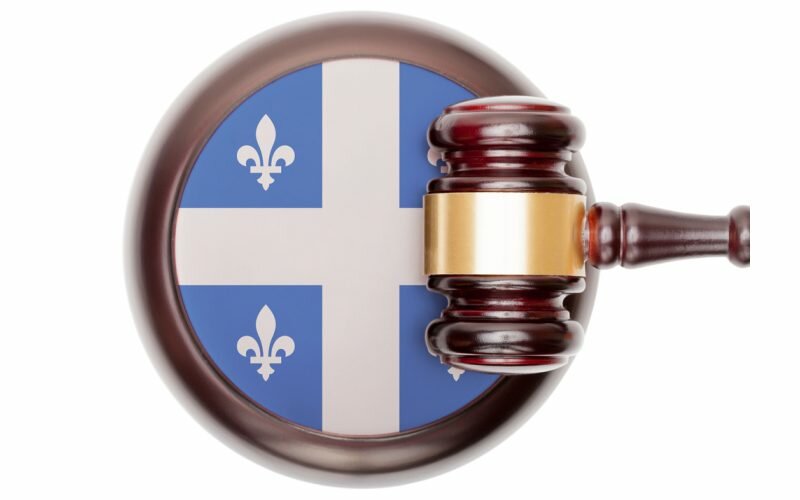Quebec is a great travel destination for tourists who want to experience the best of both worlds. Travelers can enjoy the magnificence of the city of Montreal and appreciate the stunning view of Mont Tremblant. It is not difficult to fall in love with Quebec’s natural beauty with its mix of modern and traditional culture.
The people of Quebec are hospitable and friendly. They welcome tourists with open arms. However, there is one thing they do not tolerate – drug possession. Quebec enforces strict laws to prevent dangerous drugs from entering their borders. They also impose severe penalties for those who are caught for drug possession.
Drug Classification in Quebec
The Canadian government governs the laws and regulations of drug possession in Quebec. Different types of drugs are grouped accordingly:
-
Schedule I. Drugs, as well as their derivatives and related forms that are included in this category, are:
- Amphetamines (Speed)
- Cocaine
- Codeine
- Flunitrazepam or Rohypnol
- GHB
- Heroin
- Methadone
- Morphine
- Methamphetamine or Crystal Meth
- Opium, and
- Phencyclidine (PCP or Ketamine)
- Schedule II. Cannabis (pot or marijuana), and cannabis resin or hashish are included in this drug classification.
-
Schedule III. Substances in this classification include:
- Ecstasy
- Mescalin, and
- Psilocybin or magic mushrooms
-
Schedule IV. The substances below are included in the Schedule IV grouping:
- Anabolic steroids
- Barbiturates
- Librium, and
- Valium
- Schedule V. Drugs such as propylhexedrine are included in this group.
- Schedule VI. Lastly, ephedrine and pseudoephedrine are included in Schedule VI.
Drug Trafficking and Drug Possession
Drug trafficking, as well as drug possession, are the two most common drug-related offenses in Quebec. If you are a tourist in Quebec, it is best to stay away from any form of drugs as the country has strict policies on the matter.
- Drug Possession. Regardless of the quantity, if you are caught with any amount of drugs, you are subject to the drug-related laws of the country. Drugs refer to the illegal substances under the Canadian regulations. It includes, but are not limited to:
- Cannabis or marijuana
- Cocaine
- Ecstasy
- Heroin
- Methamphetamine and others.
- There are times when circumstances allow a person to carry drugs. For example, despite being on the list of prohibited drugs, you have a prescription for Ritalin, a drug used for treating attention deficit disorder (ADD) or attention deficit hyperactivity disorder (ADHD), you are allowed to take it but within the doctor’s prescribed dosage.
- Also, when you are caught in possession of marijuana, unless you can prove that it is for medical purposes, you will be liable and be punished under Canadian drug laws.
-
Drug Trafficking. Drug trafficking is the act of cultivating, manufacturing, distributing, and selling illegal substances. This global trade has been going on for many years. Despite government efforts to stop drug trafficking, it is still rampant.
- This crime is considered as more severe than drug possession. Once caught, you can face more substantial punishment, and you may be required to pay a more significant fine.
What are the Punishments?
Penalties or sentences are imposed when locals and tourists are guilty of drug-related crimes. Those guilty may be serving a minimum sentence of one to two years in jail. Maximum penalty can be as high as a life sentence.
Before the judge can convict the guilty party of the minimum sentence, these conditions must first be met:
- The person guilty of the crime is aware that the minimum sentence may apply before he or she pleads guilty or not guilty.
- The attorney who represents the government intends to prove the circumstances that support a minimum punishment.
The judge can give the guilty party a chance to be part of a rehabilitation program before the sentence is final. When the accused completes the program successfully, the judge is no longer required to issue the minimum penalty.
Factors that Judges Consider
When sentencing a guilty party, judges are expected to respect sentencing principles indicated in the Criminal Code. Judges must take note of incriminating elements that are particular to drug-related offenses.
These factors make the drug-related crimes more severe in the courts:
- Crime was committed near schools or areas where minors were present
- Minors (children below 18 years old) were used as customers or accessories to the crime
- Possession or use of a weapon during the crime
- Threatening to use violence at the time of the crime
- The guilty party has a previous record of the same crime.
The judge has the power to adjust the sentence of the guilty party, depending on the number of drugs involved, type of substance, and extent of the crime.
- A person who was found guilty of drug trafficking a significant amount of cocaine will have a longer sentence than a person who was caught in possession of a small quantity of marijuana.
- A person who sells drugs to make money to fuel his or her addiction may get a shorter sentence compared to a drug trafficker who sells drugs for profits.
When traveling to another country, it is essential to respect their laws and regulations. Drug possession, whether you are in your home country or Quebec, is not a laughing matter. Those who are proven guilty will undoubtedly face the consequences.
Those who are proven guilty will undoubtedly face the consequences.
April Sears
April Sears has been a law writer for more than two decades, and she is currently working on her next piece. She also writes pieces on law topics for the common reader. April is family woman, and she loves spending her free time with her family.
About Author
Write a Comment
Only registered users can comment.











